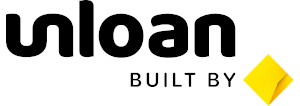LMI, or lenders mortgage insurance, is essentially an insurance premium that YOU pay to cover the risk for your lender. The risk for the lender is taking you on as a borrower with a smaller deposit. LMI, depending on provider and deposit size, can add tens of thousands to your home loan. It’s also often capitalised into the loan - unless you pay upfront - which makes it even more expensive because it’ll be charged interest.
However, there are a few discounts and offers on LMI by some banks and lenders, which we’ll explore below.
Advertisement
Buying a home or looking to refinance? The table below features home loans with some of the lowest interest rates on the market for owner occupiers.
| Lender | Home Loan | Interest Rate | Comparison Rate* | Monthly Repayment | Repayment type | Rate Type | Offset | Redraw | Ongoing Fees | Upfront Fees | LVR | Lump Sum Repayment | Additional Repayments | Split Loan Option | Tags | Features | Link | Compare |
|---|---|---|---|---|---|---|---|---|---|---|---|---|---|---|---|---|---|---|
6.04% p.a. | 6.06% p.a. | $2,408 | Principal & Interest | Variable | $0 | $530 | 90% | Featured 4.6 Star Customer Ratings |
| |||||||||
5.99% p.a. | 5.90% p.a. | $2,396 | Principal & Interest | Variable | $0 | $0 | 80% | Featured Apply In Minutes |
| |||||||||
6.09% p.a. | 6.11% p.a. | $2,421 | Principal & Interest | Variable | $0 | $250 | 60% | Featured Unlimited Redraws |
|
Low or No Cost LMI Home Loans and Offers
There are generally only a few ways borrowers can pay low or zero LMI premiums, which can include having:
-
a large deposit,
-
a chunk of equity in another home,
-
a guarantor, or
-
a trustworthy profession (e.g. doctors, lawyers, engineers and accountants are often exempt from paying LMI).
However, another way is through a special offer or deal. Australia’s competitive home loan market means lenders will fight for good borrowers with enticing discounts and promotions. Lately, some of these have included discounted or waived LMI for those with a 15% deposit.
The below list is not exhaustive - these are just upfront offers. You might find lenders are willing to be a bit more flexible on a case-by-case basis, especially if you’re a doctor or in another esteemed profession. You might also get special broker-only offers, so if you’re using a mortgage broker, it could pay to speak with them directly.
We’ve endeavoured to list some of these deals below, but do keep in mind - ‘special offers’ could end at any time.
UBank
UBank waives LMI on some home loan products if the borrower has a 15% deposit - 85% LVR.
In fact, LMI is waived across all home loans - variable and one, three and five-year fixed options - for owner occupiers should they have a 15-20% deposit, paying principal & interest (P&I).
According to UBank, owner occupiers could save $5,000 in insurance costs on an average loan of $480,000 by saving for a $72,000 deposit (15%) instead of $96,000 (20%).
86 400
The neobank now owned by NAB waives LMI for owner occupiers making P&I payments with a 15% deposit. It is available through its ‘Neat’ and ‘Own’ variable home loans, as well as fixed home loans for one, two, three or five years.
The main difference between ‘Neat’ and ‘Own’ product lines is that the Own line comes with an offset account.
86 400 crunched the numbers and found borrowers in Sydney could save more than $10,000 on the median property value.
St. George Bank, Bank of Melbourne, BankSA
The Westpac subsidiaries have their ongoing and popular offer of $1 LMI. If you’re a first home buyer on P&I payments, and have a deposit of 15%, you’ll pay only $1 for LMI with a maximum loan size of $850,000 (i.e. a $1 million home value).
Only one applicant needs to be a first home buyer. For St. George, the offer is available across basic variable and fixed-rate product lines, or on variable home loans under the ‘Advantage Package’ line - an annual $395 annual package fee applies.
St. George says a family buying a $650,000 home could save around $6,000 in premiums by taking advantage of the offer.
RAMS
Westpac-owned RAMS has an offer where first home buyers paying P&I could save up to $5,000 on LMI premiums. Interestingly, the offer is available for first home buyers on either an owner occupier loan, or an investment loan, making it possible to ‘rentvest’.
Like other Westpac subsidiaries mentioned above, RAMS will charge $1 for LMI. For premiums that cost more than $5,000 the bank will chip-in $5,000. Where RAMS differs is that it is available for deposits as little as 5%, or 95% LVR.
However, on a home worth $500,000 with 95% LVR, LMI premiums could cost nearly $15,000 anyway, meaning the borrower is out-of-pocket nearly $10,000, and ultimately more if LMI is capitalised into the loan.
Pros of LMI offers and discounts
Get into market sooner
With a smaller deposit you’ll be able to get into the market sooner, and the capital gains could quickly outweigh any extra interest paid on the home loan. It also gets your foot in the door, and your deposit won’t dwindle with runaway housing prices. However, appreciation isn’t guaranteed.
Stop treading water earning little savings interest
It can be demoralising being a diligent saver and seeing your money earn barely any interest. Real savings can even go backwards when inflation is taken into account - it’s almost like the world just wants you to throw caution to the wind. As is often said these days, the best savings account is usually piling money into your home loan.
Build up equity and refinance
As you’re getting into the market sooner, you can start paying off your home loan sooner and build up equity. If you’re not impressed with your home loan interest rate, provided it’s variable you can usually refinance when you’ve built up at least 20% equity and attain a more competitive rate.
Cons of LMI offers and discounts
Higher interest rate
A lot of these home loans aren’t offering the lowest interest rates - the lowest rates are usually reserved for those who have a 20% or greater deposit. You’ll have to weigh up the extra interest paid versus time spent saving for a deposit and the potential for capital gains.
Compare LMI premiums
Not all LMI premiums are made equal. Depending on provider, lender and your deposit size, premiums could vary a lot, anywhere from 0.5% to more than 4.5% of the property’s value is common. This could add up to tens of thousands of dollars, which might outweigh the LMI discount in the first place.
May not offer much of a benefit
The home loan offerings typically waive LMI for borrowers with a 15% deposit. You’ll have to stop and ask yourself if it’s really that much more onerous to save up 20% and find a more competitive home loan deal. This is ultimately a personal decision.
As with most things in life, there’s no such thing as a free lunch. While you’ll get a discount on LMI with these offers, you might have to compromise in other areas. As always, shop around and consider your own finances and budget before applying for a home loan.
Photo by Maria Ziegler on Unsplash

Ready, Set, Buy!
Learn everything you need to know about buying property – from choosing the right property and home loan, to the purchasing process, tips to save money and more!
With bonus Q&A sheet and Crossword!






 Emma Duffy
Emma Duffy
 Harrison Astbury
Harrison Astbury
 Rachel Horan
Rachel Horan
 Denise Raward
Denise Raward
 Hanan Dervisevic
Hanan Dervisevic

